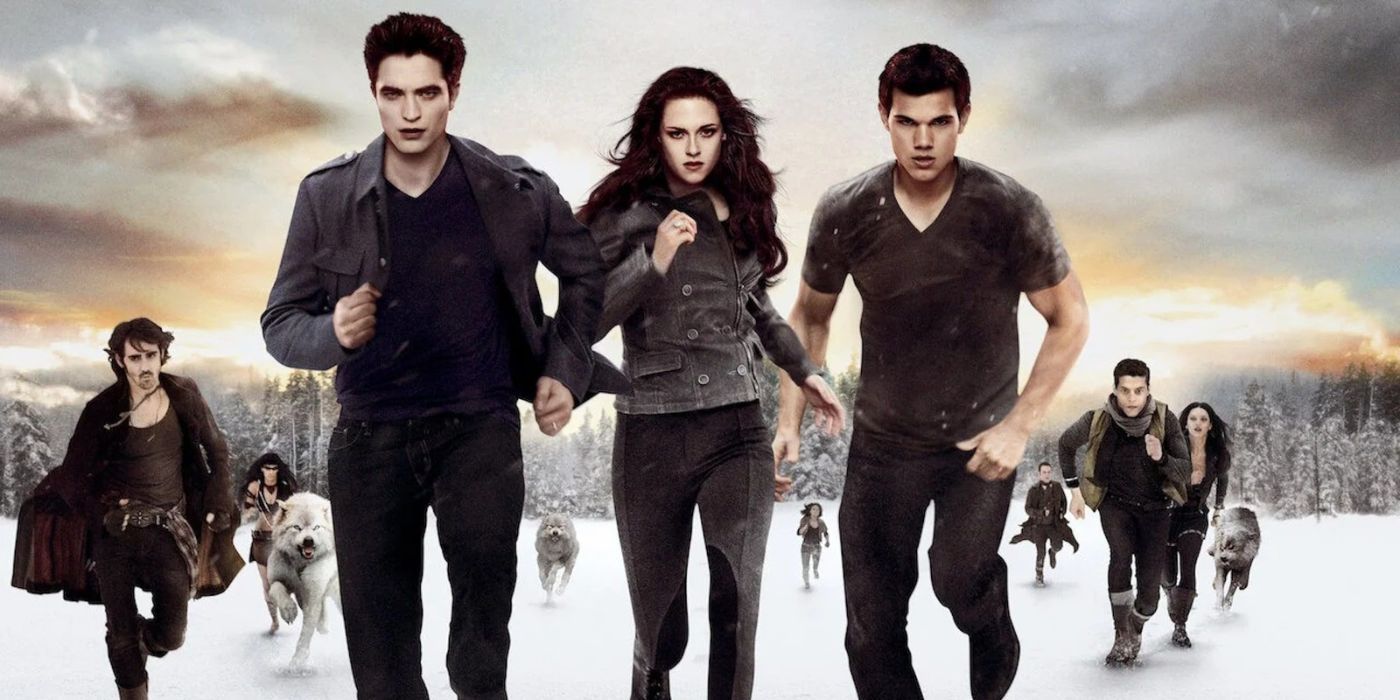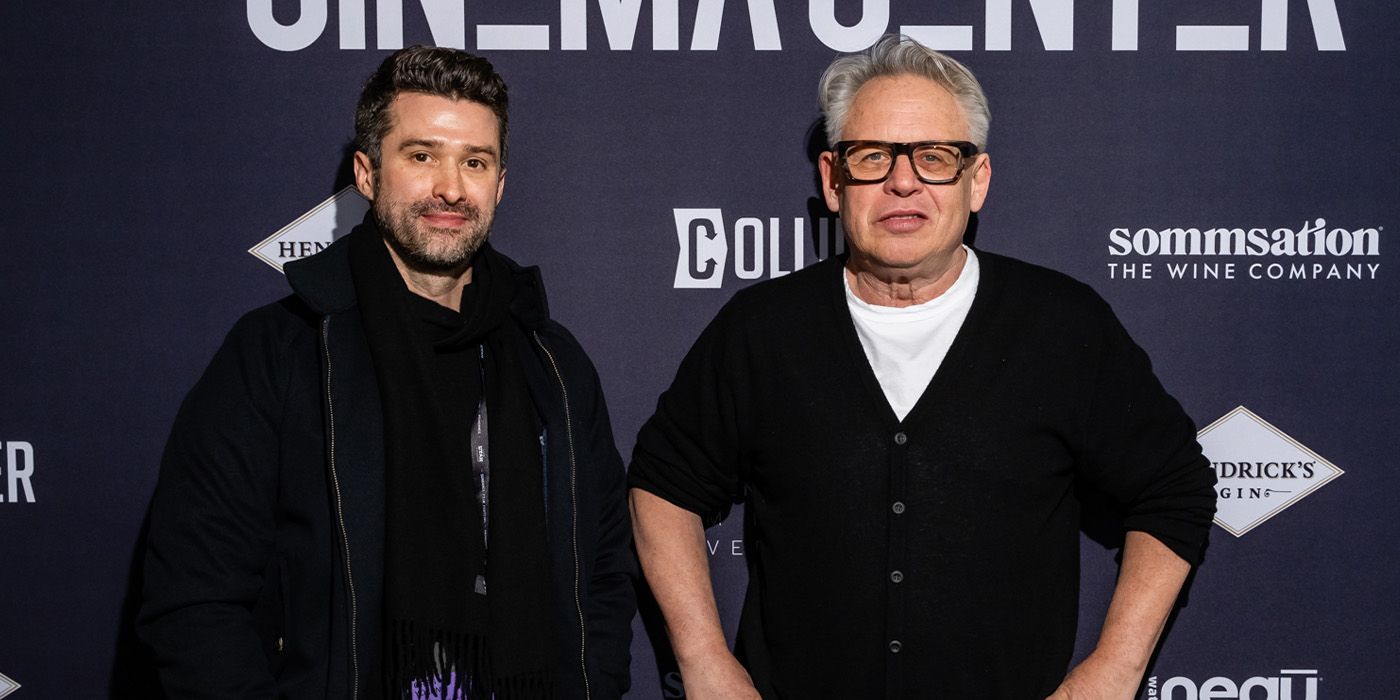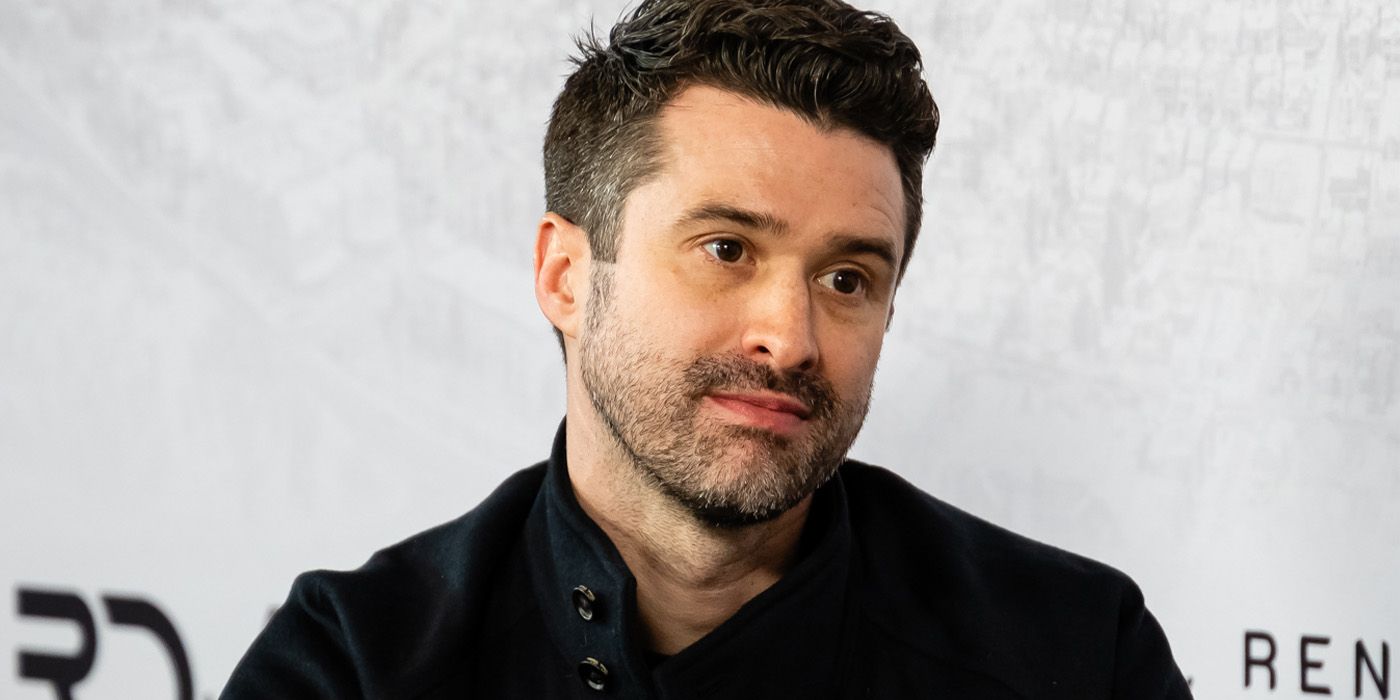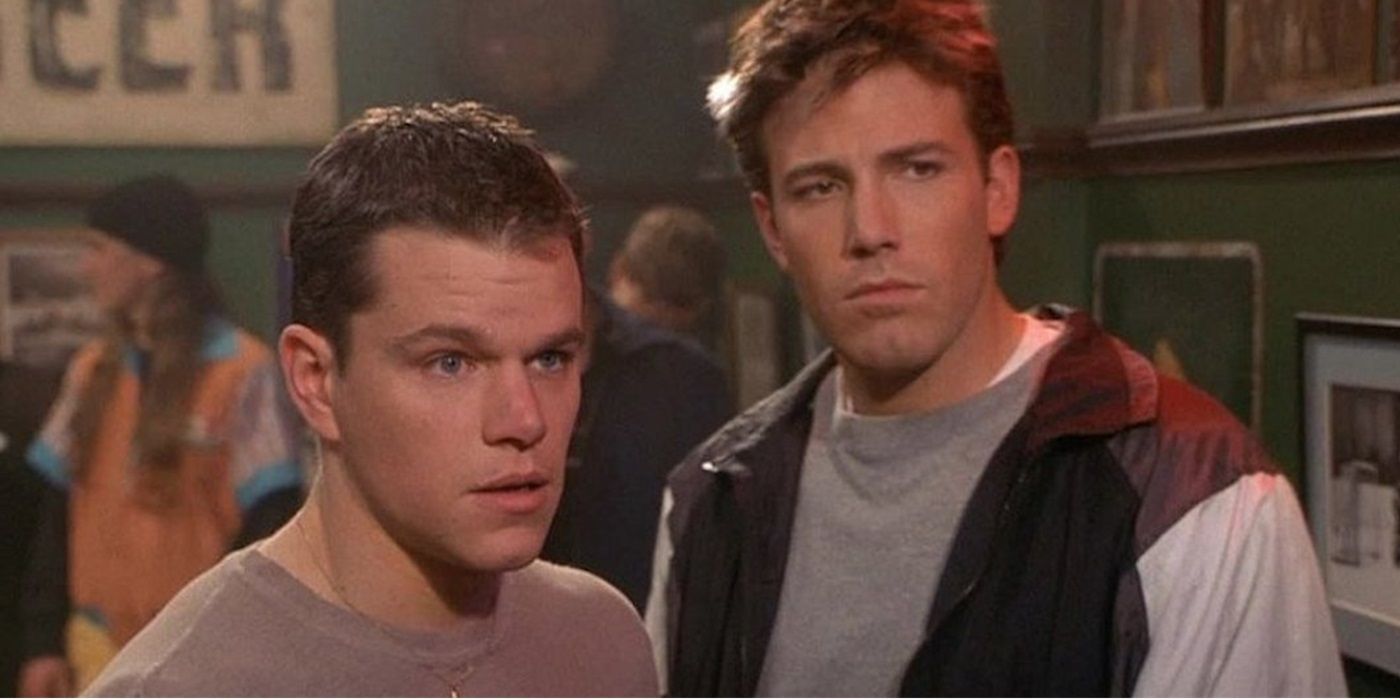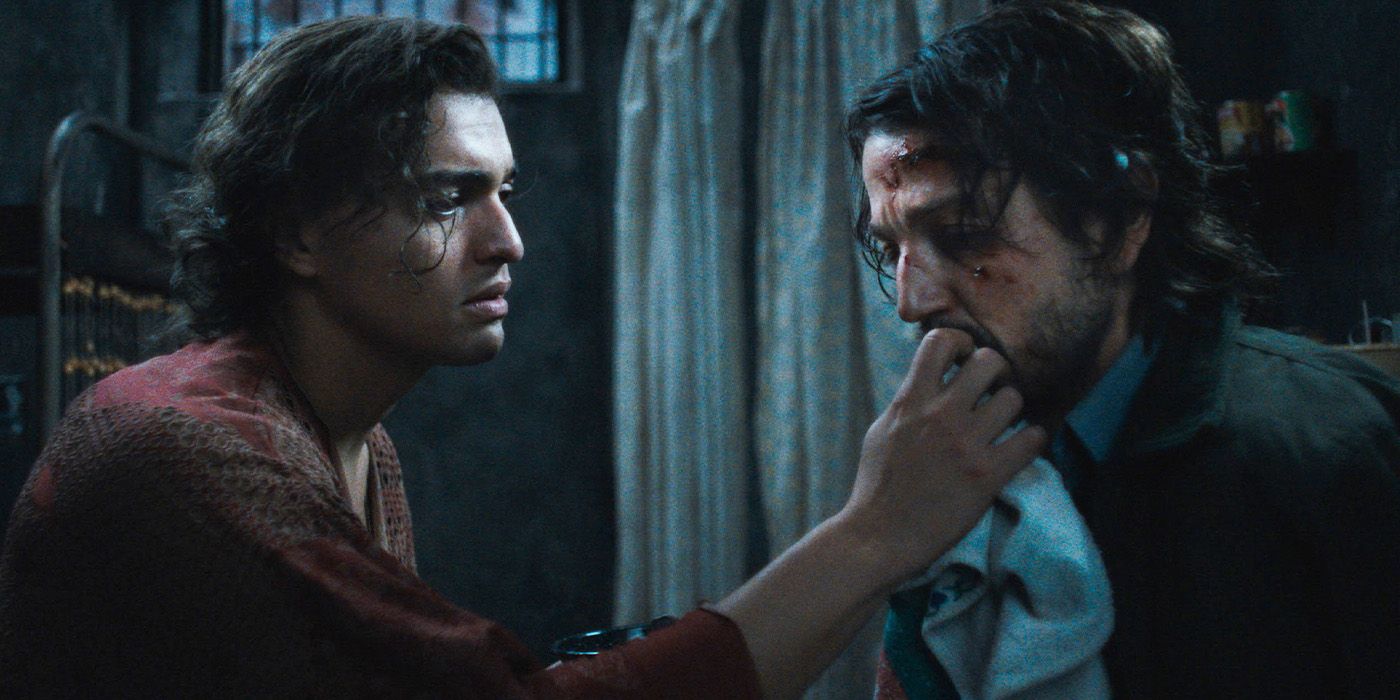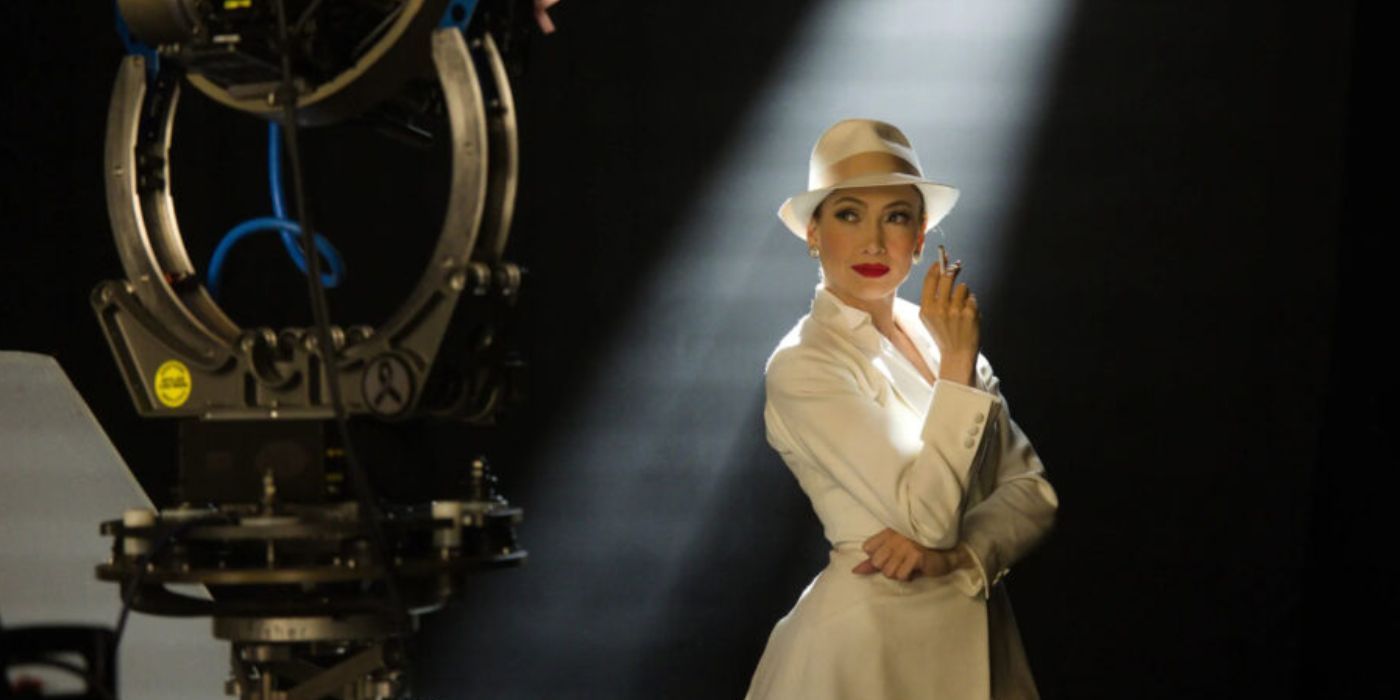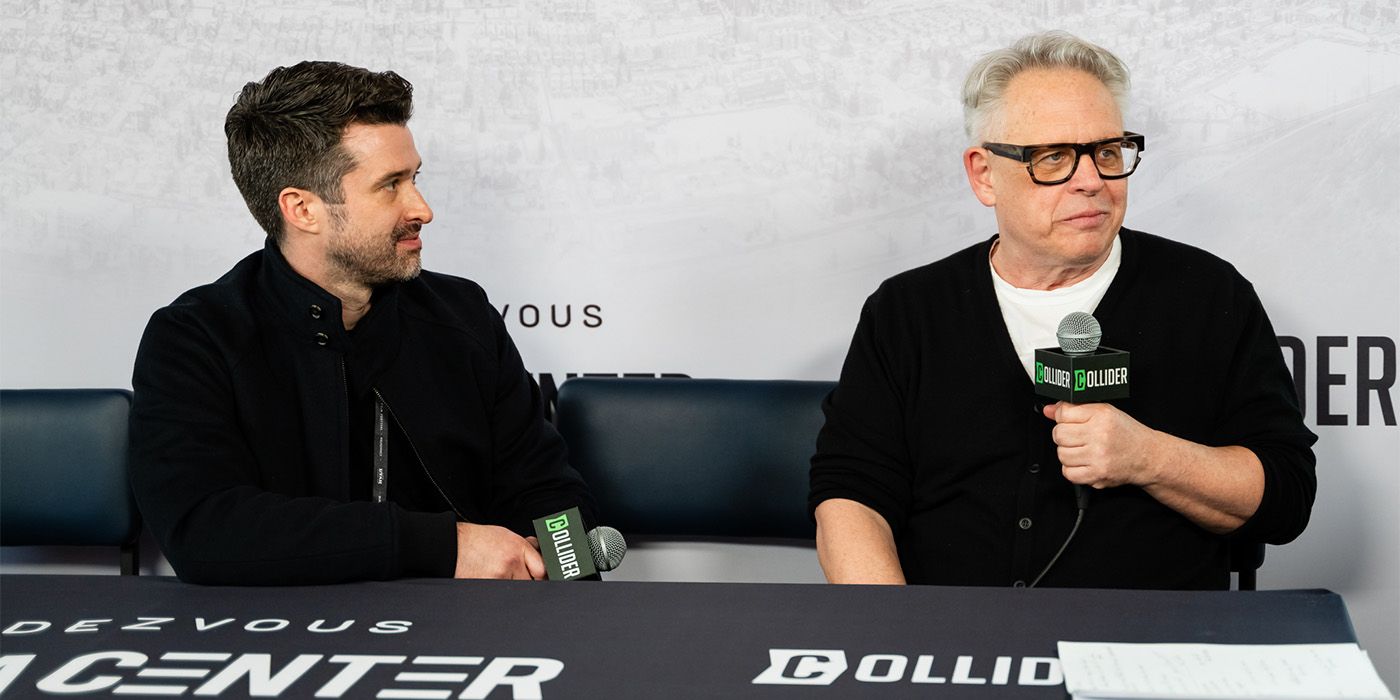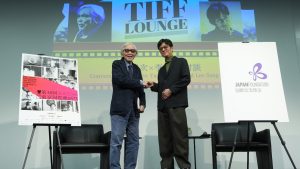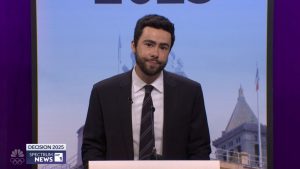
Summary
- Collider’s Steve Weintraub speaks with writer-director Bill Condon and producer Greg Yolen for Kiss of the Spider Woman at Sundance Film Festival 2025.
- Starring Diego Luna, Jennifer Lopez, and rising star Tonatiuh, Kiss of the Spider Woman is a reimagining of the novel and stage musical.
- In this interview, Condon and Yolen discuss working with their lead trio, filming in New Jersey and South America, financing this independent passion project, and more.
Oscar-winner Bill Condon was itching to make Kiss of the Spider Woman 20 years ago while he was still working on the hit adaptation of Chicago. The upcoming film, written and directed by him, is a reimagining of both Manuel Puig‘s Argentinian novel of the same name and the stage musical crafted by Terrence McNally. It focuses on two prisoners, one being a queer outcast and the other being a tormented revolutionary, as they form a bond while sharing a cell. Part musical inspired by Hollywood’s Golden Age and part prison drama, Kiss of the Spider Woman promises to be a unique cinematic experience that is even difficult for Condon to put into words.
The director visited Collider’s media studio at the Rendezvous Cinema Center at the Sundance Film Festival alongside the film’s producer, Greg Yolen. During their conversation with Collider’s own Steve Weintraub, the duo discuss the challenges of bringing a Broadway production to the screen, working closely with Jennifer Lopez to perfect the musical numbers under a tight shooting schedule, finding the ideal Luis Molina in newcomer Tonatiuh, and the challenges of working with two different casts and crew while making the film.
Condon also shares more about the extended version of The Twilight Saga – Breaking Dawn: Part 2, and teaming with Ben Affleck and Matt Damon‘s production company, Artists Equity. You can watch the full interview in the video above, or you can read the transcript below.
What’s With the Shorter Oscars Conversation?
The Academy Awards celebrate filmmaking once a year.
COLLIDER: We’re here to talk about Kiss of the Spider Woman, but I have a few things that I’d like to address before we get into the movie, if you don’t mind. First, you produced the 81st Oscars.
BILL CONDON: Yes, I did with [Laurence] Mark.
What do you think would surprise people to learn about what it’s like to produce an Oscar?
CONDON: I think the most surprising thing is how hard it is to get people to present awards. You would be shocked how many excuses people come up with to not present awards.
Is it because of the size of the audience, or the people just don’t want to do it?
CONDON: I don’t know what it was, but it took a lot of persuasion a lot of the time.
My feeling about the Oscars is, listen, stop complaining that the show is three hours. Embrace the length. It’s a celebration of the best of cinema for the year. I don’t understand why everyone is wanting to cut certain things. What the fuck?
CONDON: I agree with you.
GREG YOLEN: Good question. “What the fuck?”
CONDON: That’s more of a network thing, frankly, than the Academy thing. That is a lot of income for the Academy from their network deal. I think there’s always that pressure—if you go over a certain hour, you don’t get the same ratings, you don’t get the same commercial rates, and all that stuff. It’s as simple as that, I hate to say.
I want to see production design. I want to see cinematography. I want to see the performances. And I think a lot of people do, too.
CONDON: I agree with you.
I like movies that go long—I love The Batman at three hours—but there are a lot of people who like 90-minute movies. I don’t know who’s financing, but how much are you already thinking about, “Do I have to make this movie two hours? Do I get to make two hours and 30 minutes?” How much does that factor into the creative process at the beginning?
CONDON: You tell the story, you get it into the right shape, and then you figure out how long that’s going to be. What’s interesting here is that there’s so much great music; you could spend 20 hours and not scratch the surface of it. So, I think that’s going to be the challenge. I do think that can sometimes make for a longer experience because the pleasure of it is so strong.
With streaming and with Blu-rays and everything else, how much are you down with doing like a 2:15 in theaters and then saying, “Fuck it, we can do a three-hour cut on Netflix or a three-hour cut on the Blu-ray?”
CONDON: Blu-rays? [Laughs] That’s the problem with that. I think that was a good model up to a few years ago. I know now there are iTunes extras and things like that, but it’s weird. I miss it. I miss knowing there’s that definitive version with alternate versions all in one place. It doesn’t happen as much anymore, which is frustrating.
It’s very frustrating because, also, with streaming, it’s not like there’s a runtime limit. You can say, “Here’s the theatrical, and here’s the extended.”
CONDON: It’s true. I did that with Dream Girls. Ten years later, we had an extended version, which really is my preferred version, and it has supplanted the other version.
There’s an Extended Version of ‘Breaking Dawn: Part 2’ in the Vault
“It would take a lot of money to create Renesmee at the level that we did before—that’s a joke.”
Here’s my only question on Twilight. We talked a while ago about you doing a longer version of Breaking Dawn Part 1 and 2 as one movie. Whatever happened with that?
CONDON: We do have a longer version of Part 1. Part 2, we sort of have tucked away, but it would take a lot of money to create Renesmee at the level that we did before — that’s a joke. But the actual combining them into two, I think, has never been of too much interest to the studio.
So you’re saying there is a cut of Part 2 that you could do that’s longer. It just needs money.
CONDON: Yeah, exactly.
How much longer would it be?
CONDON: Not that much. I think it’s like 10 minutes.
YOLEN: Yeah, I don’t think it is very different.
Is it just some VFX shots you need to finish?
CONDON: Yeah. That’s a big VFX movie, like in that big battle at the end.
Here’s a question. There are a lot of Twilight fans. Do they need to raise, like, $10 million, or do they need to raise like $5 million to get there?
YOLEN: This is a GoFundMe in two hours. [Laughs]
I’m so serious because there are probably a lot of fans who would pay money to see the longer version.
YOLEN: Gotta take that up with Summit Entertainment.
Thank you for indulging me.
‘Kiss of the Spider Woman’ Feels Like Part of a Trilogy
After Cabaret and Chicago, this one “had to be a movie.”
For Kiss of the Spider Woman, what was it about this material that made you say, “I want to make the movie of the Broadway musical?”
CONDON: It’s a very, very loose adaptation of that musical. If people know the movie Cabaret compared to the stage show, it’s as kind of reinvented as that movie was. For me, it’s an idea that started when I was writing Chicago. Again, Cabaret and Chicago, this felt like the third part of a trilogy. These Kander and Ebb very dark musicals about characters who try to escape from the grim reality that they’re in by fantasizing. The thing about Kiss of a Spider Woman is that he projects himself into and fantasizes about movies, so it had to be a movie. It always felt like it was one of the great unmade, and there aren’t that many stage musicals that should be movies, but this one needed to be.
So let’s talk a little bit about getting the rights because I’m sure that’s a battle. What was it like putting this whole thing together?
YOLEN: It took a long time. There was a great deal of, I would say, confusion at various points—years and years of it. Then, finally, our great friend, the producer Tom Kirdahy, who had been the partner of Terrence McNally, who wrote the book of the Broadway musical, had the rights for that. Then, Barry Josephson, who is a major Hollywood producer, found the underlying rights to the film and the novel. When we finally had confidence that everything had come together, that’s when Bill was able to kind of go underground and come out with this thing that really had been living in his mind for so long at that point, partly because of how long it had taken to put those rights together. Very quickly, he came out with a draft that everyone looked at immediately and said, “That’s it. That’s the movie.”
How did you get the rights? Did you already have financing? Because it costs money to get the rights and to get this thing going.
CONDON: We didn’t have anything. No money touched hands on this movie. I wrote the movie on my own. It was a handshake deal with Tom and with John Kander, “Let me do this.” I had known John from Chicago. Then, even those underlying rights holders, it was all shopping agreements. It was really just all done in a speculative way, which is what we wanted because we knew it had to be made as an independent movie. As soon as your money is changing hands, there’s pressure because of that. Also, there’s money. Suddenly, the people with the rights want more money than we’re going to be able to give them.
YOLEN: People really joined hands from the very inception of the project, understanding that the way to get this done was for everyone—not just Bill—to treat it as a passion project, and people really did, right down the line.
Ben Affleck and Matt Damon’s Production Company Is Changing the Game
Artists Equity financed Kiss of the Spider Woman.
How involved were Artists Equity?
CONDON: They financed the movie, along with a partner.
I’ve heard about Artists Equity and the way that it’s a new model of doing stuff. For people that don’t know, what is it?
CONDON: Well, it’s like a 21st-century United Artists. Again, it has “artists” in the title, and I don’t know of another studio that has that. So the idea here is that the people—scriptwriters, directors, stars—we get paid scale.
YOLEN: Producers, too.
CONDON: Producers, too. That’s right. You get paid the minimum you can get paid, but you have real ownership of the movie. If you are lucky enough to sell the movie and, across its life, it starts to make more money than it costs, then everybody gets a share in that.
It’s so refreshing and so great for artists to have that financial backend that isn’t going to be fucked over by studio accounting.
CONDON: Exactly. It’s a very different model. Yes.
So, we’re at Sundance. You haven’t been here since Gods and Monsters. What is it like being here again with a movie that’s also for sale?
CONDON: It’s exciting and nerve-wracking, as it was then. Again, it was made the exact same way. No money changed hands; we just made that movie. It didn’t sell right away either, as you remember. So, that, hopefully, will be a little quicker this time. But it’s great. We, with Artists Equity’s support, got to make the movie exactly the way we wanted to make it. So now, you gotta hope that there’s a power to that, that that gets reflected interest.
YOLEN: I would just add that one of the reasons we’re so excited to be here, specifically at Sundance, is that the film is many things, but it is also this real love letter to the golden age of Hollywood and American filmmaking. There’s something about being at the premier American festival, at this moment, that feels like such a perfect place to launch it, even though in other ways it’s not exactly your most typical Sundance fare. It feels right.
Finding the Perfect Molina
“There’s a huge list of things that this actor had to be.”
You wanted an unknown to play Molina. Can you talk about why?
CONDON: Well, they could have been known, but I thought it was important. First of all, there’s a huge list of things that this actor had to be. He had to be Latin, he had to be a great singer and dancer, an incredible actor—because, really, this character is the emotional center of the movie, so he had to carry the movie on his shoulders—and queer. I thought all those things were important, and I don’t know of that many famous people who fit that bill, frankly. So we did a search in South America, Europe, all parts of America, Mexico—hundreds and hundreds of people—and finally found our Molina.
How nervous were you that you weren’t going to find someone that made you light up?
CONDON: You do get nervous. Absolutely. And it takes a while. Tonatiuh delivered their first self-tape, and it was like, “Oh, there’s something there,” and then came to New York. That was pretty deep into the process that I was just looking at them and thinking, “Wow, it’s all there.”
Jennifer Lopez Shot 11 Musical Numbers for ‘Kiss of the Spider Woman’
“No one else on Earth could have done this.”
Everyone knows J-Lo is in the movie. Talk a little bit about the role that J-Lo plays and how important music is to her character.
CONDON: Jennifer plays three parts in the movie. She plays an actress, she plays the lead character in the movie within the movie, and then another character in the movie—she plays Spider Woman, Aurora, and Ingrid. Three separate parts. It is a musical movie, so she has 11 musical numbers, which is spectacular. No one else on Earth could have done this, especially because we shot them all in a four-week period before we went to Uruguay to do the prison part of the movie.
Music and dance is a huge part of it, but that does not at all diminish the performance she gave. It’s an unbelievably delicate thing she pulled off because she’s acting in the style of a 1950s movie, but never, ever, ever mocking it or making fun of it. She’s making it real. I don’t know anybody else who could have done it.
I’m a huge Diego Luna fan. Huge. I want to stress this. So talk a little bit about Diego, why you wanted Diego in the movie, and his performance.
CONDON: I wanted him in the movie because, in this telling, it’s a love story. These qualities that Diego has—intelligence, compassion, humanity, all of that—are the almost ideal version of a student revolutionary. But I have to say, working with him, I’m as huge a fan as you are. I think he’s really among the best, if not the best actor I’ve ever worked with. It just astonishes you. Also, he’s a great collaborator. He’s somebody who has produced movies and directed movies. The experience is something I’ll treasure forever.
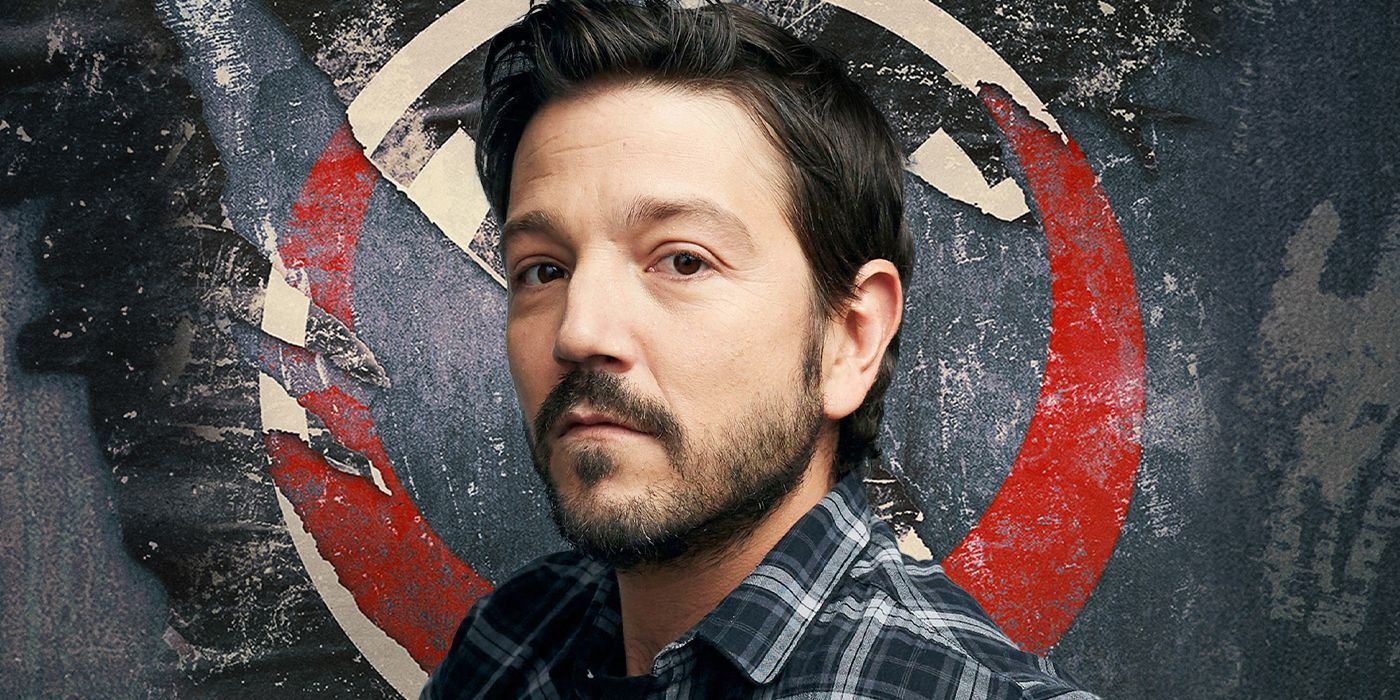
Related
Diego Luna Says Tony Gilroy Is “Raising the Bar” With ‘Andor’ Season 2
He also revealed where they have been recently filming the series.
I want to ask a production question. Every project always has certain unbelievable hurdles that you don’t see coming, and you need to figure out a way through them. For this project, what were the one to three hurdles that needed to be solve?
YOLEN: I would say Bill spoke to the first one already, which is that we had this very short window in which we could capture all of Jennifer’s material, and really, with anyone other than Jennifer Lopez, I don’t think we would have been able to capture all of her scenes. I think we shot everything with her in the film in 17 days. Generally, when you’re working on a musical, you get to do a big musical number, walk away, do some book scenes, rehearse, get ready. Jennifer was doing a new musical number every single day and coming in and nailing it. That was something that we all realized we were barreling towards, again, on a tight budget. You can’t really just say, “Oh, we’ll pick that up tomorrow.” We really had to hit our marks, quite literally, and she really did. So again, we were all kind of like, “Oh, thank God. We actually pulled off the New Jersey unit of the film,” which was all the musical stuff.
Then, I would say another challenge was just that Bill wrote two films. There is the musical within the film, and then there is the prison drama that frames that, and we were committed to making the musical version, the film within the film, very lavish and very period-accurate and buying ourselves that ability to be lavish—Colleen Atwood’s costumes, for example, are absolutely first-rate—by making a very, very tight mini-movie that complimented a less expensive film. So what we had to do is, we kind of had to bifurcate the production, say goodbye to a lot of our crew, which was hard, in New Jersey, and go to South America and start this completely different movie with an almost entirely new crew who were wonderful. Again, it was one of those kismet things where it’s like, “Well, thank God we have a fantastic South American crew and a fantastic New Jersey crew.”
Then I would say the third thing was just making sure that those two things actually stitched together into one film.
‘Kiss of the Spider Woman’ Is Two Movies in One
“That was a bit of trial and error for us.”
I’m fascinated by talking about the editing process. How did this film change in the editing room in ways you didn’t expect?
CONDON: I’ve just got to shout out to Brian A. Kates, a brilliant editor who’s getting a big award here tomorrow. Well deserved. But more than anything, it was what Greg just said. We have these two very separate movies, and that is the thing I think that’s boldest about the film. We are asking you to invest in something hyper-real in the prison and then be equally invested in these characters who exist in a 1950s Hollywood movie. That was the thing that we played with the most. When are you ready to move from one to the other? Do you resent moving at a certain point? I think that that was a bit of a trial and error for us to find the thing that made it ultimately feel seamless and not have you resent being pulled out of one to the other.
Did you have a much longer cut that you tweaked, or is it pretty much, “This is the version?”
CONDON: We started with a cut that probably, at the end of the day, was 15 minutes longer. Maybe one day, it comes out in some imaginary Blu-ray or whatever.
Sometimes people have an assembly cut that’s three hours, but in actuality, it’s always a two-hour and 20-minute movie. Did you have a cut of the film that was 2:20 where you were like, “This is fantastic, but we gotta get it shorter?”
CONDON: It wasn’t about getting it shorter. It was really about listening to the audience. Once Molina gets out of prison, for example, there were scenes I loved, but we were lingering. You just get that sense from an audience, and you learn a lot. It’s something I love. When you say, “Do you want to expose that,” it doesn’t exist as the preferred cut. It’s just interesting. For anyone who loved the movie, in 10 years, maybe it will be an interesting thing to look at.
YOLEN: Back to the editing thing for one second, there was a great moment I’ll remember for the rest of my life when we were down in Uruguay. We just started shooting the prison stuff, I think it was day two of the prison stuff, and Brian Kates, our editor, as we’re doing it, sends the version of the assembly that now cuts together the first musical number and the first prison stuff. Bill and I, in the hotel, were watching it and going, “Oh, fuck, it works! Yeah, these two things, they go together.” And that was just like a big gust of wind in our sales for the rest of the show.
Special thanks to our 2025 partners at Sundance including presenting partner Rendezvous Capital and supporting partners Sommsation, The Wine Company, Hendrick’s Gin, neaū water, and Roxstar Entertainment.
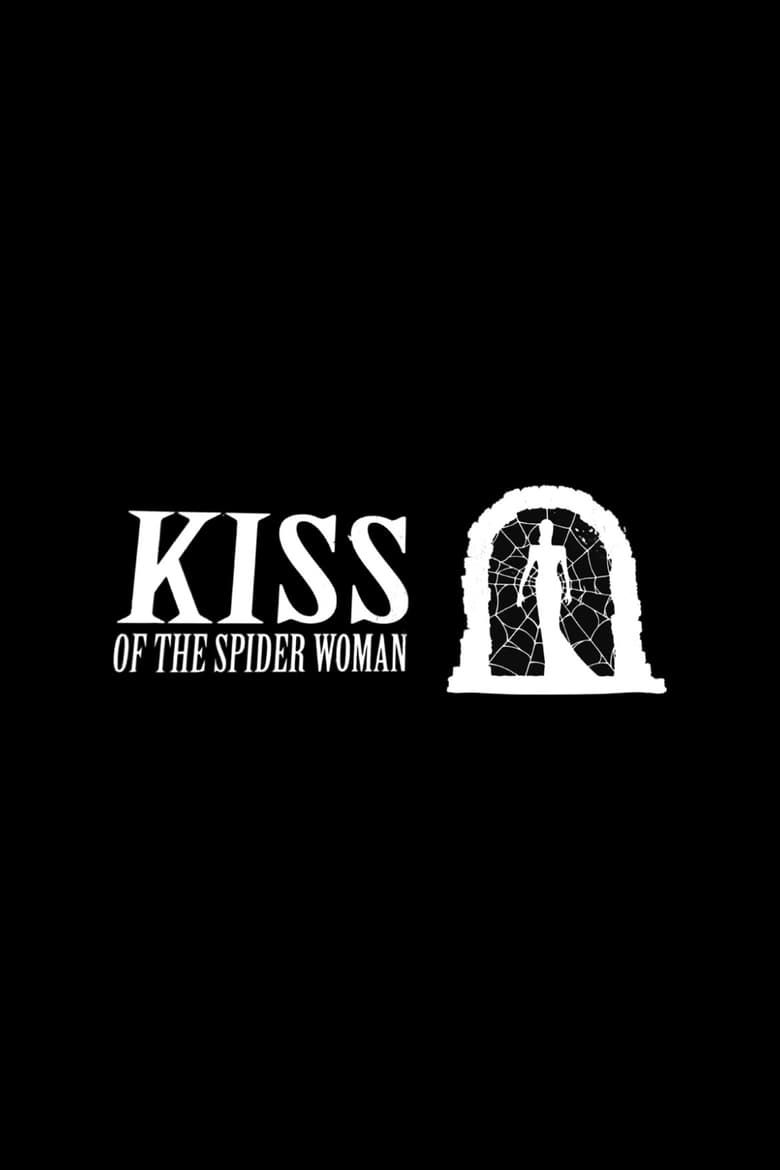
Kiss of the Spider Woman
- Release Date
-
January 26, 2025
- Runtime
-
128 minutes
Cast
-
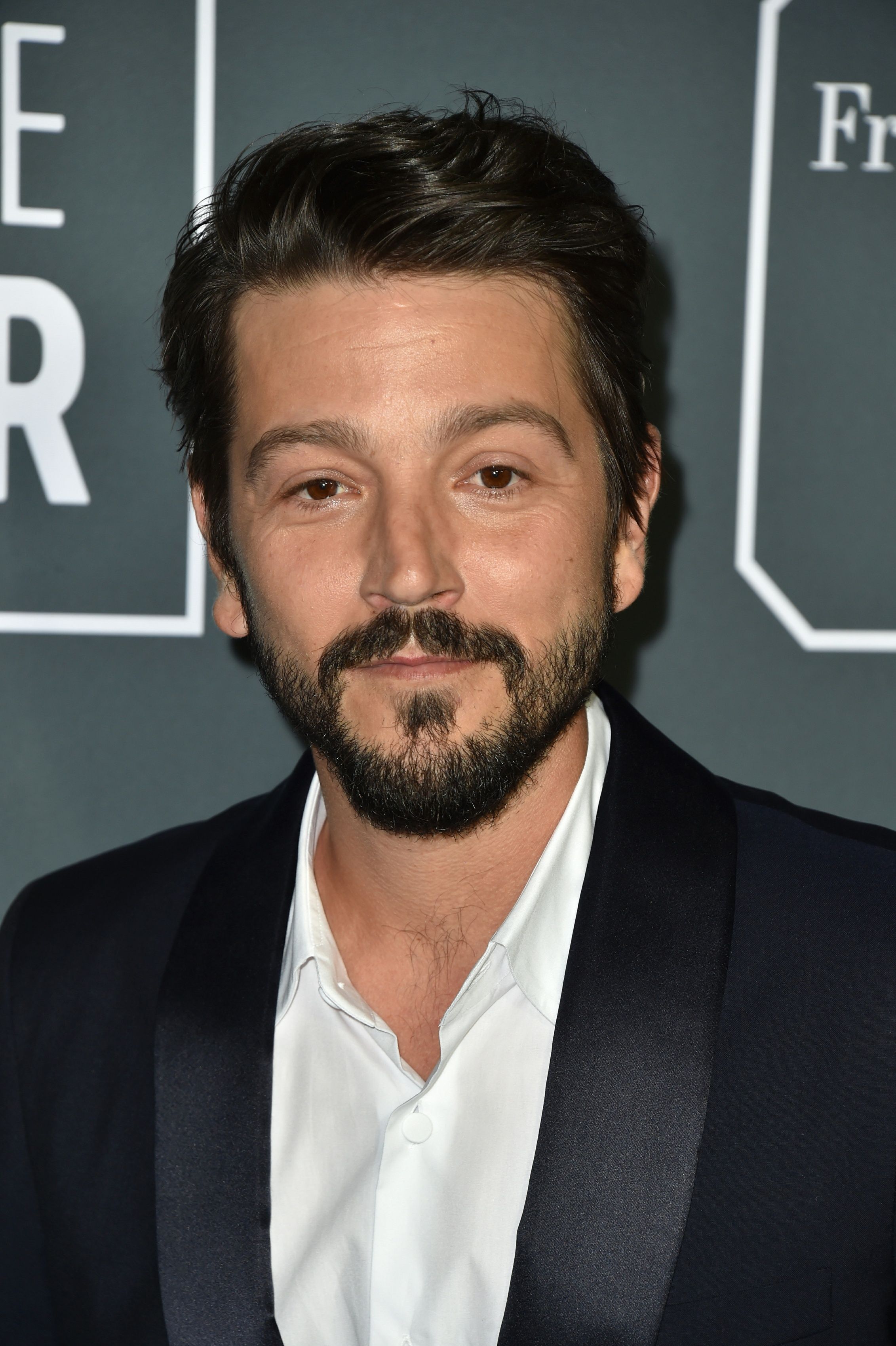
Diego Luna
Valentin Arregui
-
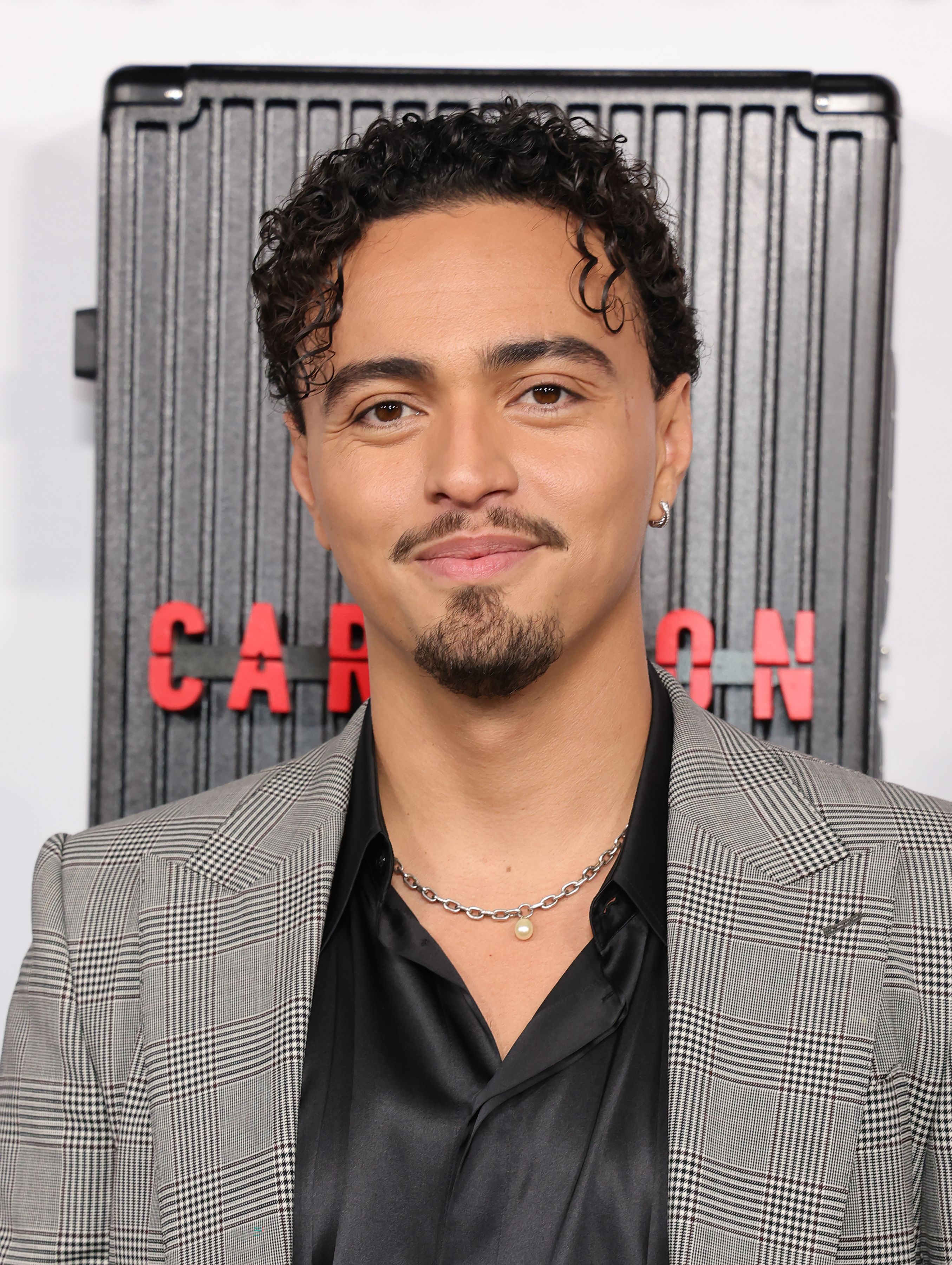
Tonatiuh Elizarraraz
Luis Molina

